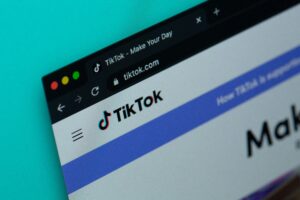Despite reported slower growth in 2022 so far, non-fungible tokens (“NFTs”) are still expected to surpass 2021 in market sales. NFTs are unique digital files, featuring images or short videos, that are usually purchased with cryptocurrency, using blockchain technology to establish verified proof of ownership. As the growth of the NFT industry continues, potential sellers who create or “mint” NFTs, are encouraged to consider the myriad terms and provisions that serve to protect their interests and rights, even after NFT sales are completed. Such terms would typically be part of an NFT owner agreement, an essential part of any transaction.
What Should the NFT Owner Agreement Address?
The general overriding concerns should be those of protecting the creator’s (or seller’s) intellectual property rights, as well as present and future financial interests. To safeguard such interests, the NFT owner agreement (also known as an NFT license agreement) should be prepared in order to identify each party’s respective rights, and include the following basic contractual categories: (1) Definitions, (2) Ownership, (3) License, (4) Restrictions, and (5) Terms of License. Keep in mind that contract terms “ride” with the NFT itself and cannot be changed. Also, please note that an NFT owner agreement is separate and distinct from “smart contracts,” (computer programs stored on the blockchain that operate as programmed and cannot be changed).
NFT Owner Agreement Impacts Future Use
One of the most important considerations of an NFT owner agreement concerns use of the NFT in the future. The NFT minter can set forth the rights buyers will have at the time of purchase, which may include the purchasers’ rights to display, copy, and use such NFTs. Without these provisions spelled out, the purchaser may, arguably, have unlimited use of the NFT without restriction.
The NFT owner agreement typically provides for one of two types of “Use”: (1) General; and (2) Commercial use. If the agreement grants “general” use rights, then purchasers typically receive a “worldwide, non-exclusive, non-transferable, royalty-free license to use, copy, and display the Art” that underlies the purchased NFTs for personal, non-commercial use or resale. For agreements that include “commercial” use rights, NFT purchasers may be allowed to create and sell their own merchandise (e.g., T-shirts) featuring such NFTs.
Protect Your Rights with an NFT Owner Agreement
Creators of NFTs have a lot at stake when minting, and offering for sale, certain intellectual property on the Blockchain. It is important to understand the potential ramifications of selling an NFT collection in advance of the mint date. To protect your rights today, and in the future, you will need an NFT owner agreement.
If you are interested in learning more about this topic or require assistance in connection with preparing an NFT owner agreement, please e-mail us at info@kleinmoynihan.com, or call us at (212) 246-0900.
The material contained herein is provided for informational purposes only and is not legal advice, nor is it a substitute for obtaining legal advice from an attorney. Each situation is unique, and you should not act or rely on any information contained herein without seeking the advice of an experienced attorney.
Photo by Rafał Lasiewicz on Unsplash
Similar Blog Posts:




